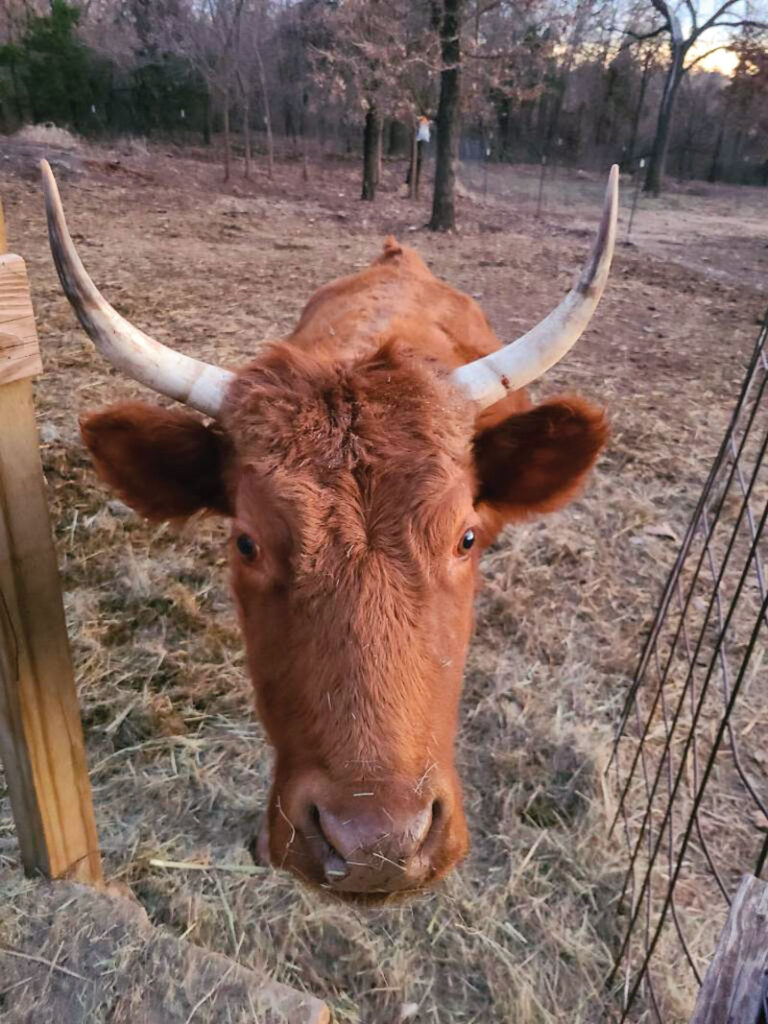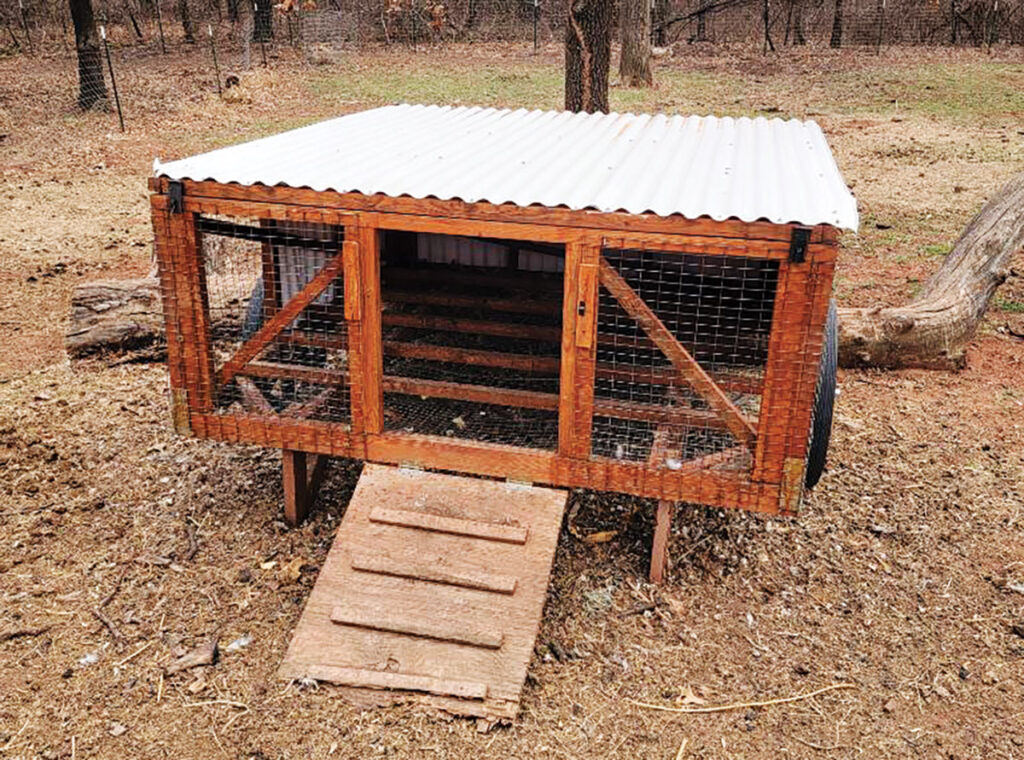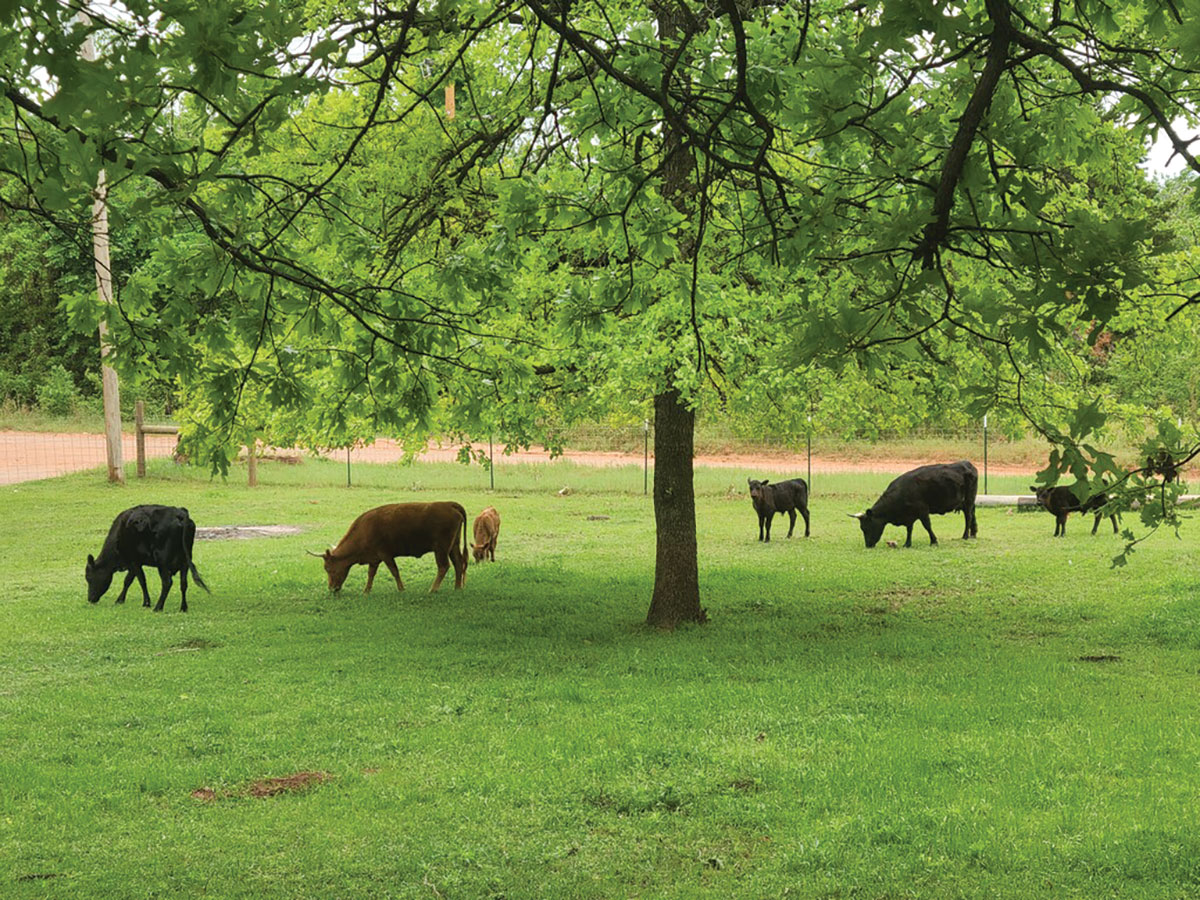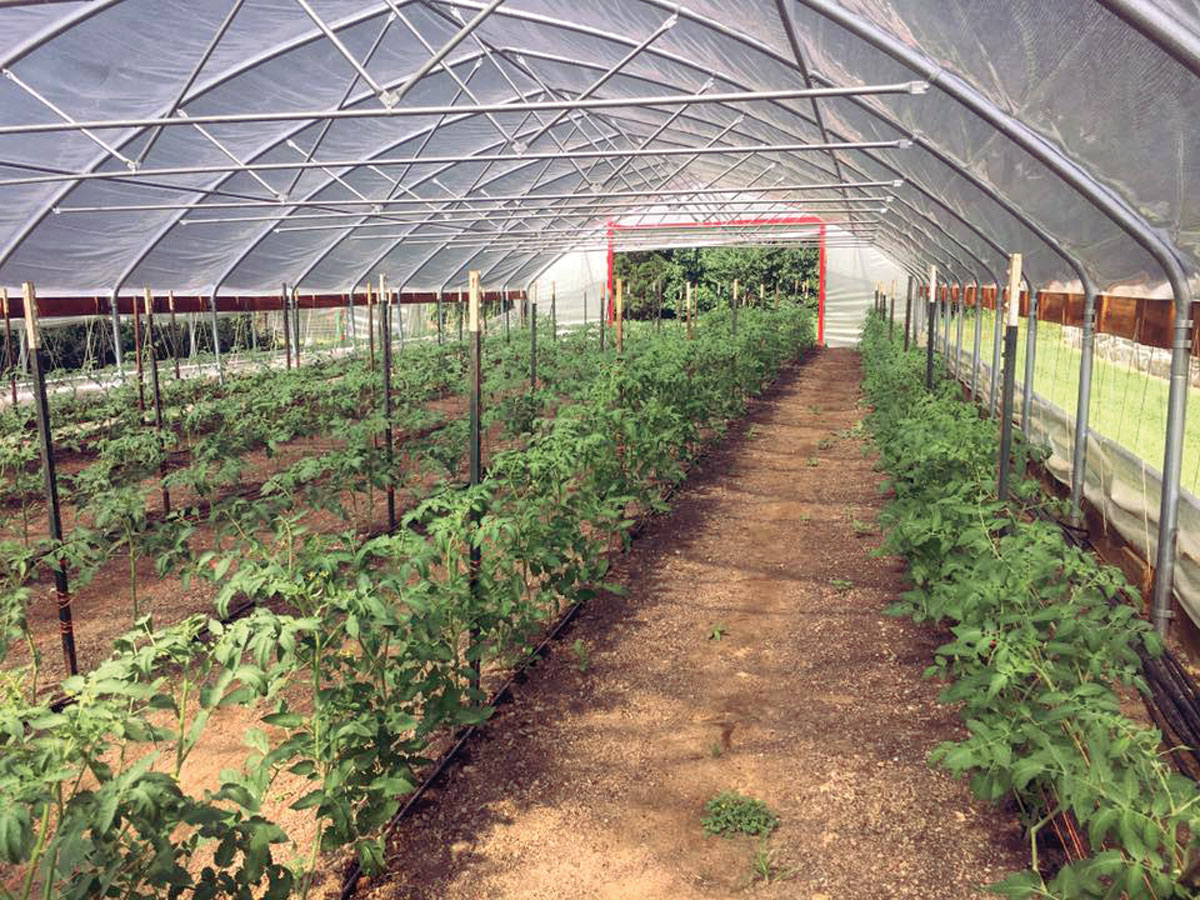
Raven Hill Homestead optimizes available land and resources
GUTHRIE, OKLA. – Producers have to make the most of their land, even if it’s only a few acres. That’s precisely what John Rambo did when he and his family started Raven Hill Homestead near Guthrie, Okla.
John Rambo said he has been around agriculture and farming since he was a child growing up on his family’s farm.
“I don’t remember when we didn’t have animals,” he explained. “We would rotate between chickens, goats and cattle; we always had stuff we could eat.”
John, his wife Kristen, and children Jack (8), Abigail (6) and Michelle (3), moved to their small farm in 2018 and began their agriculture venture.
“We wanted something low maintenance, and that would fit into our area,” he explained. “We have a lot of Bermuda around here and some other things that grow here. My wife did a ton of research on cattle and settled on Dexters. We had another cow that we thought was a Dexter, and she just kept losing weight, and we couldn’t figure out why. It turns out she couldn’t survive on what was in the pasture. We started with some sheep and goats, but they don’t do well on Bermuda. Goats can’t live on Bermuda; they need other things. We didn’t start with cattle because we thought it would be too expensive. We were wrong, very wrong.”
Today, the family has a small Dexter herd, which produces both meat and milk for the family and a few customers, with two cows currently being milked.
“About three months after their calves were born, we were getting almost four gallons of milk a day,” John said. “We started making cheese, yogurt, and everything else because we didn’t have much of a clientele, but it has grown. The cows aren’t milking as heavy now, but anyone who wants milk gets it, and we still have milk; none of it goes to waste. Once you get one customer, they tell their friends, and that’s all you have to do. You have to have a good product too.”
The Rambos are adding two Belted Galloways to their milking herd. Belted Galloways are similar in size and temperament to Dexters and produce rich milk and flavorful beef.
“I’m working on that,” John said with a laugh. “I really like the Belted Galloways. They have been doing really well on the same forage and grass and the Dexters.”
While the homestead only has 2.5 acres, the Rambos have sectioned their land into three paddocks to support the animals housed there.
“We rotate everything,” John said. “When we rotate depends on the season, the rain and everything else. There is another place where a lady has a horse operation and 11 acres. She allows us to keep our cows up there, which helps keep the grass down. Cows about to calve or are milking are at the house, and the others are there.”
John said he also assists with chores on the nearby farm, such as working on fences.
John has found the Dexters to be a sturdy breed that thrives on forages.
“They can do well on just about anything,” he said. “They are also smaller and don’t need as much as other breeds. I also think they convert their forages better than some breeds.”
Most of the herd’s diet is forage-based, but RangeMax cubes, which are 28 percent protein and 8 percent fat, are offered free choice, and cows receive additional cubes while being milked.
“I have been surprised at how well they do on that,” John said. “I really thought we would go into the hole trying to keep them fed, but it has worked really well.”
Bartering labor for hay has also allowed the Rambos to keep their input costs lower.
“I’m on the volunteer fire department, and another guy there does a lot of big square bales,” John explained. “I help get them out of the field, and because I help him in the summer, I trade it for hay.”
In addition to milk, Raven Hill now offers beef from their herd and outside calves.
“We try to only use calves born from our breeding program, but we haven’t been able to keep up with it. We have been going to the sale when we start running low and do the best we can to get those calves raised on grass. We feed them out for at least a month and get a processing date. After we get them back, the freezer is full, and we start again.
“We didn’t want to do the beef; we just wanted to do the milk and have the beef for our own needs. We thought we would see what would happen and even set the price a little high, and we are now making a little bit of money. A lot of the people who buy our beef say it is the best they have ever had. Part of it is because it’s fresh beef, but it is also Dexter beef.”
John said when they have to buy calves, they try to purchase Dexter or Dexter-influenced cattle if they have to seek animals from outside their herd.
John would like to expand the beef program, but the homestead has some limitations.
“I need more land,” he said. “The price of land has gone up, so I’m trying to find people like the lady with the horse farm that needs grass kept down. I don’t have a lot of spare cash to spend on land.”
Additionally, because the carcass is smaller, John said the processing is typically less, which helps keep prices down for customers for their USDA-inspected beef.
The Rambos have also incorporated pastured poultry into the Raven Hill Homestead. Using items found around the farm, John constructed a shelter for the birds.
“My wife found Justin Rhodes on the internet, and he’s a permaculturalist. He published plans for a ChickShaw that holds 39 chickens, that’s like a mobile chicken house; it’s about 6-feet-by-6-feet and about 2-foot tall. You aren’t making it big enough for a person to get in there because that is wasted materials.”

The poultry operation is focused on egg production at this time.
“We want to produce food for ourselves, and if we have the time and the energy to make extra to sell, we will, but we aren’t chasing that,” John said.
Another venture area is purchasing newly-hatched chicks, which Kristen cares for until they are a little older, then sells as they mature.
“We’ve found a lot of people want chickens, but they’re afraid to buy new chicks,” John said. “Once you get them past that first couple of weeks, you can sell them for more.
“Kristen has a good reputation for developing healthy chicks and puts a lot into them.”
Because their farming operation leaves little room for profits, John said they focus on the bottom line and being self-sufficient and efficient in all they do.
“I think I am using every square inch of my land now,” John said. “Back in 2018 and 2019, we had to clear some dead trees off, and this year is probably the first year we’ve been able to use it all. I also haven’t mowed our yard in a few years; I just let the cows out.”
Raven Hill Homestead uses no commercial fertilizers, depending instead on the rotational grazing and the movement of the laying hens around the farm to naturally improve the quality of the soil.
Raising and caring for their animals in a natural, reduced stress manner, the Rambos feel their livestock is healthier, reducing the need for intervention.
“They just look happy,” John said of his animals.
John added that his children are pretty happy too.
“They know it’s something pretty special,” he said.







